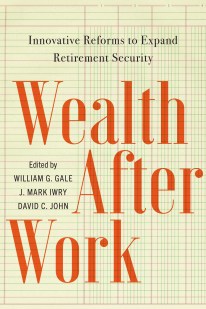Do Pensions Reduce Debt?
By Wei Chen This paper estimates the causal impact of receiving pension payments on debt behavior among older adults, with a natural experiment around China's New Rural Pension Scheme (NRPS), one of the world's largest social pension programs. Using a fuzzy difference in discontinuity research design and four waves of the China Health and Retirement Longitudinal Survey (CHARLS), I find that the introduction of the NRPS reduced debt among older adults, and increased their ability to shield themselves against shocks,...










